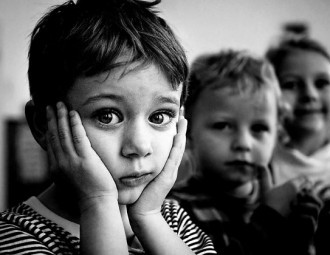It is time to move from integrated to inclusive education, Belarusan teacher-therapist says

The main plus of integrated education is the possibility to teach a child in accordance with an individually prepared program taking into account special needs of every child.
Teacher- therapist Evgenia Dailidenok had been working for 3 years in integrated class of Ozerets kindergarten of Glubokskiy district (Vitebsk Oblast). She considers that in educational process a lot depends on a teacher and that we should move from integrated education to inclusive:
- Integrated classes give us a possibility not to leave without attention kids having some peculiarities of development. It is difficult for a child to study without an integrated class – very often he doesn’t manage to understand information and to make exercises along with other kids in the class, on the other hand – it is difficult for a teacher because in such a situation he has to constantly switch his attention from one or two kids with special needs to other pupils and vice versa and it is not very good for overall degree of education.
That is why the main plus of integrated education is the possibility to teach a child in accordance with an individually prepared program taking into account special needs of every child.
- Teachers always want all the pupils to understand the program evenly, – says Evgenia. – Integrated education helps us to find an approach to every child, to take into account his peculiarities, to give him a possibility to realize his talents without separating from the school community.
Evgenia shares a positive example from her own practice: her pupil Artem has some peculiarities of intellectual development and severe vision loss. But under individual program he studies very well. Today he is an active member of art contests and other cultural events. Such inclusion of the child became possible thanks to work of teachers: they always help Artem during classes and out of school.
- There are some minuses in the system of integrated education I don’t agree with, – says Evgenia. – With the diagnosis Artem has he has to be left for the second year two times – one time in elementary school and the second time in high school. It is not good for him because he has to get used to new children every time and it makes him feel uncomfortable.
According to the specialist children with special needs sometimes may be not accepted by other kids especially it happens in new classes:
- A grown up can keep silent but a child says what he thinks. Even big glasses can become a reason for bullying. Children in cities are more aggressive I can say it because I had a possibility to compare as I studied both in city and village schools. It seems to me that it is time to move in more progressive direction – to inclusive education. In this case a lot of problems will just disappear.
-
03.01
-
07.10
-
22.09
-
17.08
-
12.08
-
30.09



























